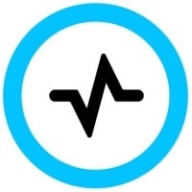

Microsoft Sentinel and Graylog Security are top contenders in the security information and event management space, each with distinct strengths. User reviews indicate pricing and support favor Microsoft Sentinel, but Graylog Security's features and value for the price give it an upper hand.
Features: Microsoft Sentinel is praised for its scalability, seamless integration with Azure, and advanced threat detection capabilities. Graylog Security is noted for its flexible log management, extensive plugin support, and user-friendly alert system. Users favor Graylog Security's robust analytics and custom dashboards despite Microsoft Sentinel's powerful integrations.
Room for Improvement: Microsoft Sentinel needs better documentation and enhanced alerting mechanisms. Graylog Security requires improvements in its search performance and more comprehensive out-of-the-box integrations. Both products receive constructive feedback, but users are more critical of Graylog Security's search performance issues.
Ease of Deployment and Customer Service: Microsoft Sentinel users appreciate its straightforward deployment within Azure ecosystems but note occasional complexities. Graylog Security has an easier deployment process, though some users find the initial setup complex without proper guidance. Customer support for Microsoft Sentinel is generally rated higher, with responsive assistance and thorough documentation, while Graylog Security users have mixed experiences with support effectiveness.
Pricing and ROI: Microsoft Sentinel is mentioned as more expensive, with high setup costs but justified overall ROI from comprehensive security features. Graylog Security's pricing is seen as more competitive, with users highlighting a favorable cost-benefit ratio and quicker ROI due to lower initial investment. The clearer ROI of Graylog Security appeals to budget-conscious buyers despite Microsoft Sentinel's higher perceived value.
| Product | Market Share (%) |
|---|---|
| Microsoft Sentinel | 4.6% |
| Graylog Security | 0.6% |
| Other | 94.8% |


| Company Size | Count |
|---|---|
| Small Business | 38 |
| Midsize Enterprise | 22 |
| Large Enterprise | 45 |
Graylog Security is designed for log management and analysis, assisting in monitoring security events, detecting threats, providing real-time alerts, and aiding troubleshooting and forensic investigations. Its scalability and customizable dashboards support IT departments in maintaining system performance and ensuring compliance.
With exceptional log management capabilities and powerful search functions, Graylog Security is reliable for threat hunting, integrating with other tools, and offering a user-friendly dashboard. Organizations value it for quickly analyzing large datasets and providing detailed insights into security events. However, better documentation and clearer instructions for new users, more efficient alerting capabilities, easier scaling, and enhanced support options could improve user satisfaction.
What are the most important features of Graylog Security?Graylog Security is implemented across diverse industries, including healthcare for patient data protection, finance for transaction monitoring and fraud detection, and retail for safeguarding customer information. Each industry leverages its detailed analytics and real-time alerting to meet specific regulatory and operational standards, ensuring a secure and compliant environment.
Microsoft Sentinel is a scalable, cloud-native, security information event management (SIEM) and security orchestration automated response (SOAR) solution that lets you see and stop threats before they cause harm. Microsoft Sentinel delivers intelligent security analytics and threat intelligence across the enterprise, providing a single solution for alert detection, threat visibility, proactive hunting, and threat response. Eliminate security infrastructure setup and maintenance, and elastically scale to meet your security needs—while reducing IT costs. With Microsoft Sentinel, you can:
- Collect data at cloud scale—across all users, devices, applications, and infrastructure, both on-premises and in multiple clouds
- Detect previously uncovered threats and minimize false positives using analytics and unparalleled threat intelligence from Microsoft
- Investigate threats with AI and hunt suspicious activities at scale, tapping into decades of cybersecurity work at Microsoft
- Respond to incidents rapidly with built-in orchestration and automation of common tasks
To learn more about our solution, ask questions, and share feedback, join our Microsoft Security, Compliance and Identity Community.
We monitor all Security Information and Event Management (SIEM) reviews to prevent fraudulent reviews and keep review quality high. We do not post reviews by company employees or direct competitors. We validate each review for authenticity via cross-reference with LinkedIn, and personal follow-up with the reviewer when necessary.